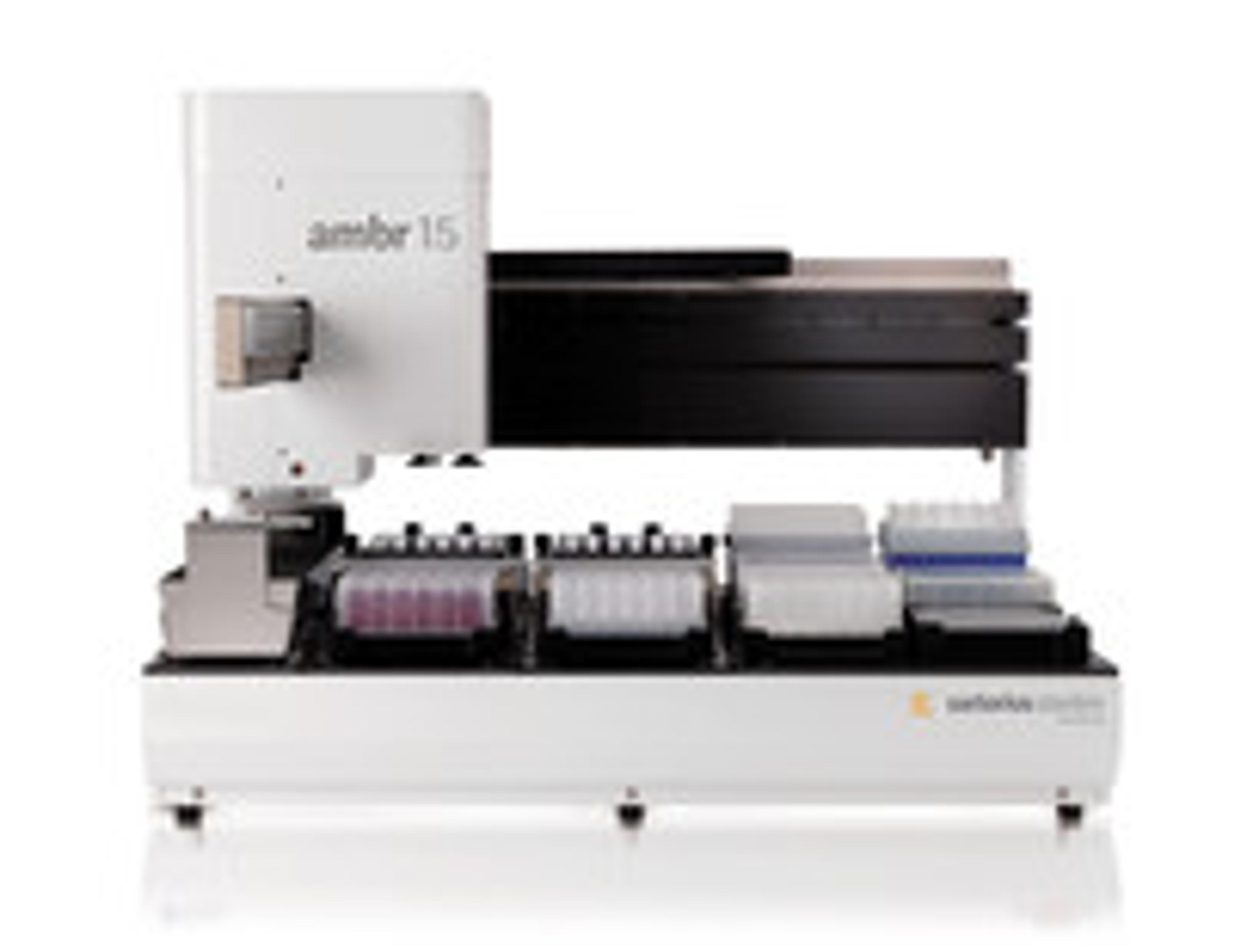New Poster on the ambr® 15 fermentation Micro Scale Bioreactor System
Presents data showing how the system can be used to support batch and high density fed batch microbial screening
15 May 2016
Sartorius Stedim Biotech (SSB) has announced a poster presented at BPI Europe, entitled, ‘A novel automated micro bioreactor for high density fed batch microbial screening applications’ is now available online. The poster details how scientists at SSB assessed the new ambr® 15 fermentation system as a model for benchtop bioreactors to support development of batch and high density fed-batch microbial cultures.
The poster presents oxygen transfer rates, dissolved oxygen (DO) and pH control data from E.coli batch cultured in the ambr15 fermentation system, which consists of 24 single-use, stirred micro bioreactors integrated to an automated workstation. These results show that the pH and gas flow in the ambr15 fermentation micro bioreactors (8-12mL working volume) are tightly controlled and can achieve a KLa of approximately 380 h-1, which is comparable to the oxygen transfer rate generated in a production scale bioreactor.
The poster also details scale-up data from E. coli cultured in a fed-batch process in ambr15 fermentation micro bioreactors, a 1L Dasgip benchtop bioreactor and an SSB ambr 250 (250 mL) mini bioreactor. The results demonstrate that the growth profiles from all three bioreactor types have good comparability and high density cultures with an OD600 > 150 can be achieved in the ambr15 fermentation micro bioreactor.
Dr. Barney Zoro, ambr15 fermentation Product Manager, at SSB commented: “An automated micro bioreactor system needs to have a combination of tightly controlled pH and DO, semi-continuous feed supply and the right type of culture agitation to provide consistent, reproducible and predictive results.”
Zoro adds: “The data in our poster indicates that the ambr15 fermentation system easily achieves these parameters, showing scientists how they could replace their shake flasks and bench top bioreactors with a micro bioreactor to significantly increase throughput of their microbial strain selection studies.”

